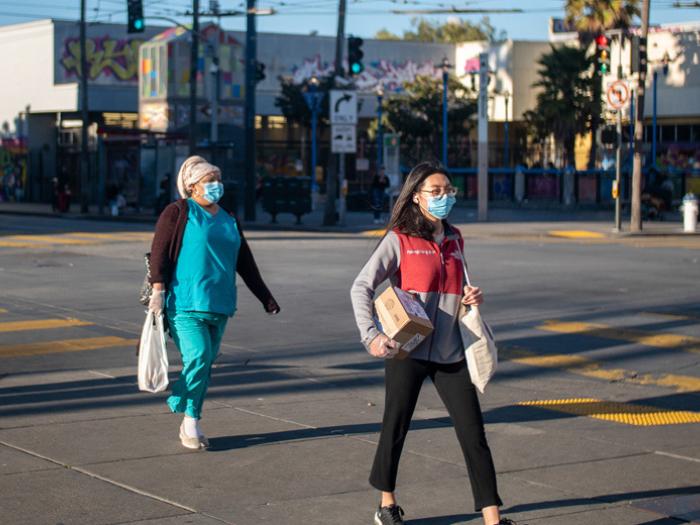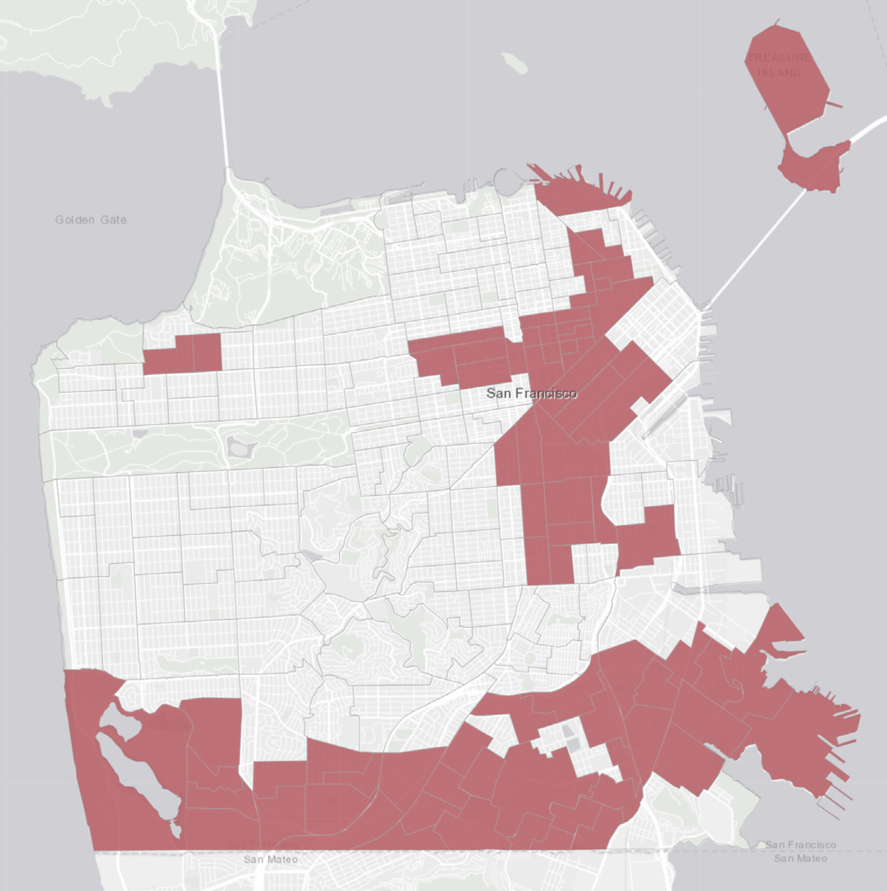
Recovery Strategies
Due to the COVID-19 pandemic and subsequent hazardous air quality caused by recent wildfires, San Francisco residents are suffering unprecedented health, safety, and well-being challenges compounded by economic hardships that only exacerbate the existing inequities within the City.
City agencies are working together to develop a coordinated Recovery Strategies work program to provide immediate and on-going measures that will help the City promote housing access, job creation, walkable neighborhoods, and address impacts of systemic racism.
The Planning Department, the Mayor’s Office of Housing and Community Development (MOHCD), and the Office of Economic and Workforce Development (OEWD) are working together to develop a coordinated recovery work program to monitor and analyze changing conditions, coordinate efforts with other agencies and departments, and provide immediate and on-going measures that will help the City adapt in the following program areas:
- Housing Recovery
- Neighborhood Business Recovery
- Neighborhood Life
- Work Spaces
Priorities
The recovery work begins with the following five priorities:
- Center recovery on racial and social equity
- Prioritize recovery towards just and vital San Francisco
- Strengthen community engagement in implementation
- Root action in data and analysis
- Coordinate strategies across agencies
Goals
The recovery strategies team has established three goals by which to prioritize its recommendations:
Serve and invest in low-resourced neighborhoods
Through the lens of Greenlining its Priority Geographies, the Planning Department seeks to repair the dispossession at the root of housing inequality in San Francisco.
Open up high-resourced neighborhoods
Neighborhoods that have predominantly white populations are also the ones with the greatest barriers to entry because of their limited housing type diversity, availability, and high cost. Housing opportunities for communities of color in high-resourced neighborhoods will truly address the diversity that all San Franciscans pursue, it will improve life expectancy, wealth access and services for people of color, and will contribute to diversify cultural resources in these neighborhoods.
Good resources across all neighborhoods
While recognizing that neighborhoods at either end of the economic spectrum play a significant role in their populations’ wealth and health outcomes, all neighborhoods must meet baseline access to high-quality resources that reduce the burdens on caregiving households, especially those with vulnerable populations, including children or seniors. As the health and well-being of many San Franciscans depends on the unpaid or low-wage labor of women, especially women of color, a recovery towards a just city needs to focus on access and proximity to high-quality education, childcare, food, healthcare, digital infrastructure, social services, and civic institutions across all neighborhoods.
Priority Geographies
The Recovery Strategies team also recognizes priority geographies as areas of investments to support culturally significant enterprise, arts, services, or businesses, and because a significant portion of its residents or people who spend time in the area or location are members of a specific cultural, community, racial, or ethnic group that historically has been discriminated against, displaced, and oppressed.

Fall 2020
- October 1 – Economic Recovery Presentation to Planning Commission (link to packet and presentations)
Winter 2020-2021
- December 3 – Recovery Strategies Informational Presentation to Planning Commission (memo and presentation)
- January 14 – Housing Recovery Presentation to Planning Commission (memo and presentation)
Spring 2021
- Neighborhood Business Recovery Presentation to Planning Commission
- Neighborhood Life Presentation to Planning Commission
- Work Spaces Presentation to Planning Commission
COVID-19 Information and Resources
- San Francisco’s webpage for services, information, volunteer opportunities and other resources
- Pandemic unemployment assistance for businesses impacted by COVID-19
- COVID-19 Emergency Tenant Protections
Project Background Info
The following work topics will provide links to foundational documents as the work progresses:
- Housing Recovery - forthcoming
- Neighborhood Business Recovery - forthcoming
- Neighborhood Life - forthcoming
- Work Spaces – forthcoming
Project-Related Documents
Informational Presentation were given to the Planning Commission on December 3, 2020 and January 14, 2021:
- Recovery Strategies Framework - Memo
- Recovery Strategies Framework - Presentation
- Housing Recovery - Memo
- Housing Recovery - Presentation
Presentations were given to community members at the General Plan Virtual events series on March 22 and March 24, 2021:
Related Projects
The Recovery Strategies builds on the foundation established by:
Questions about the Recovery Strategies?
- James Pappas, Senior Planner, james.pappas@sfgov.org
